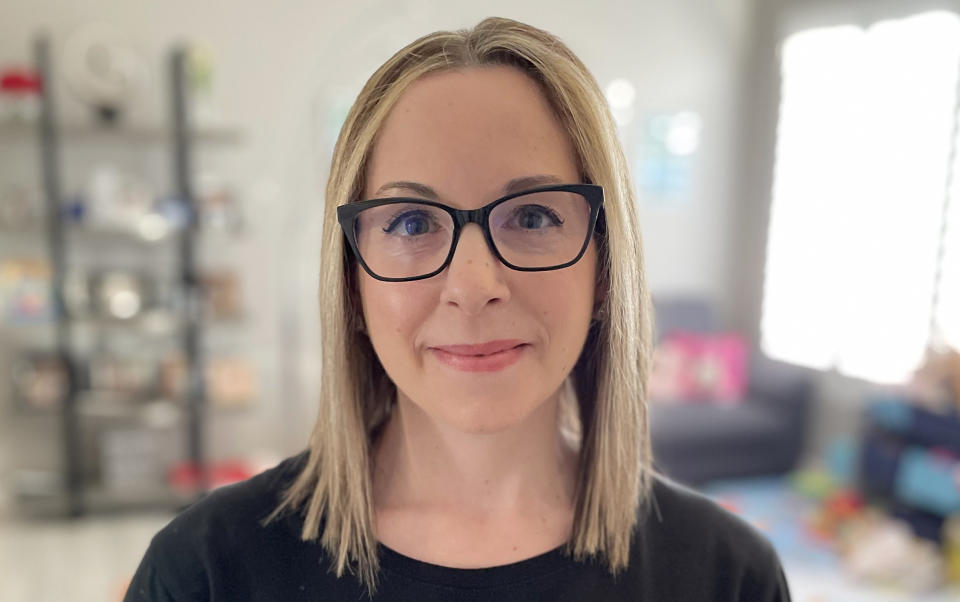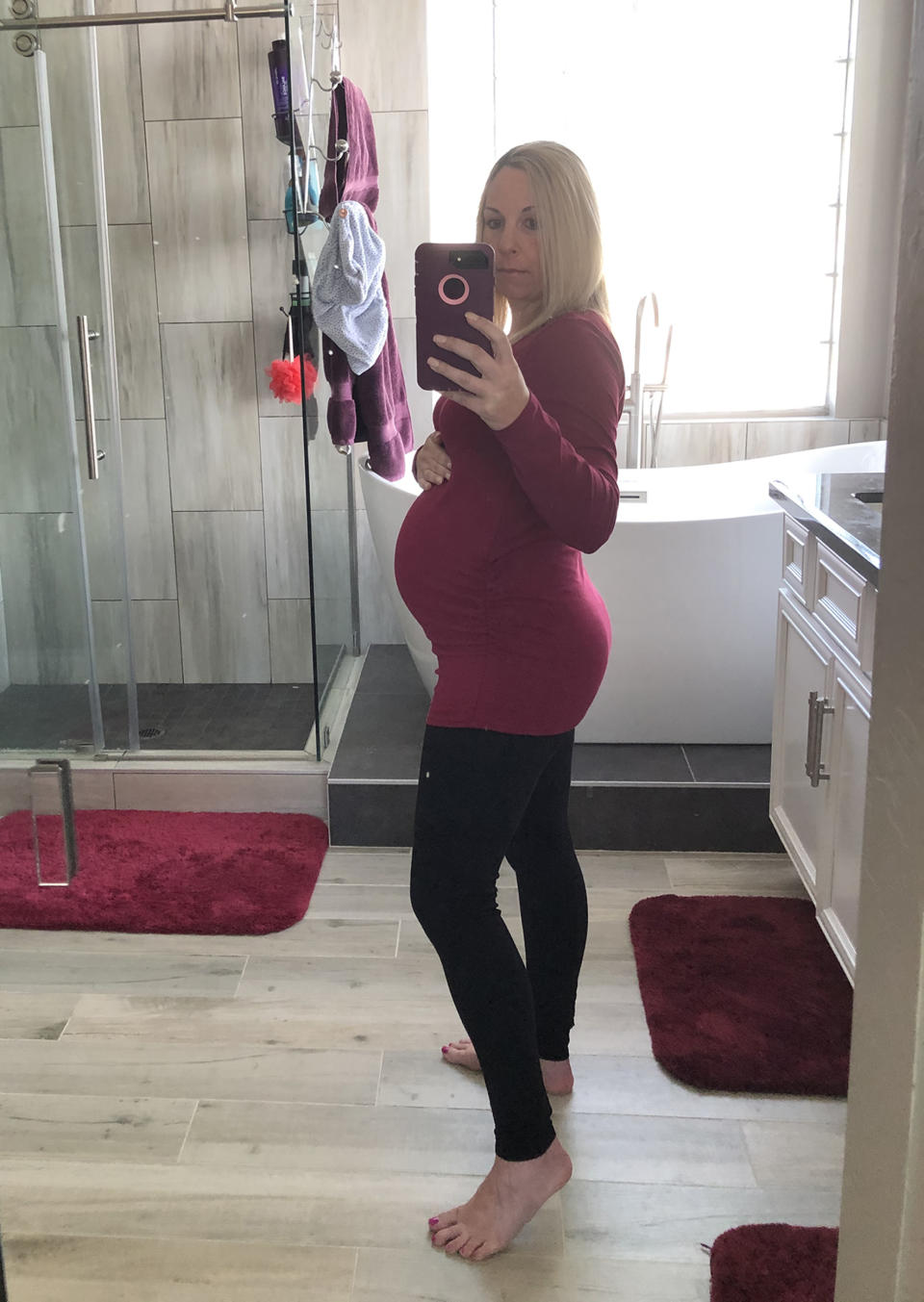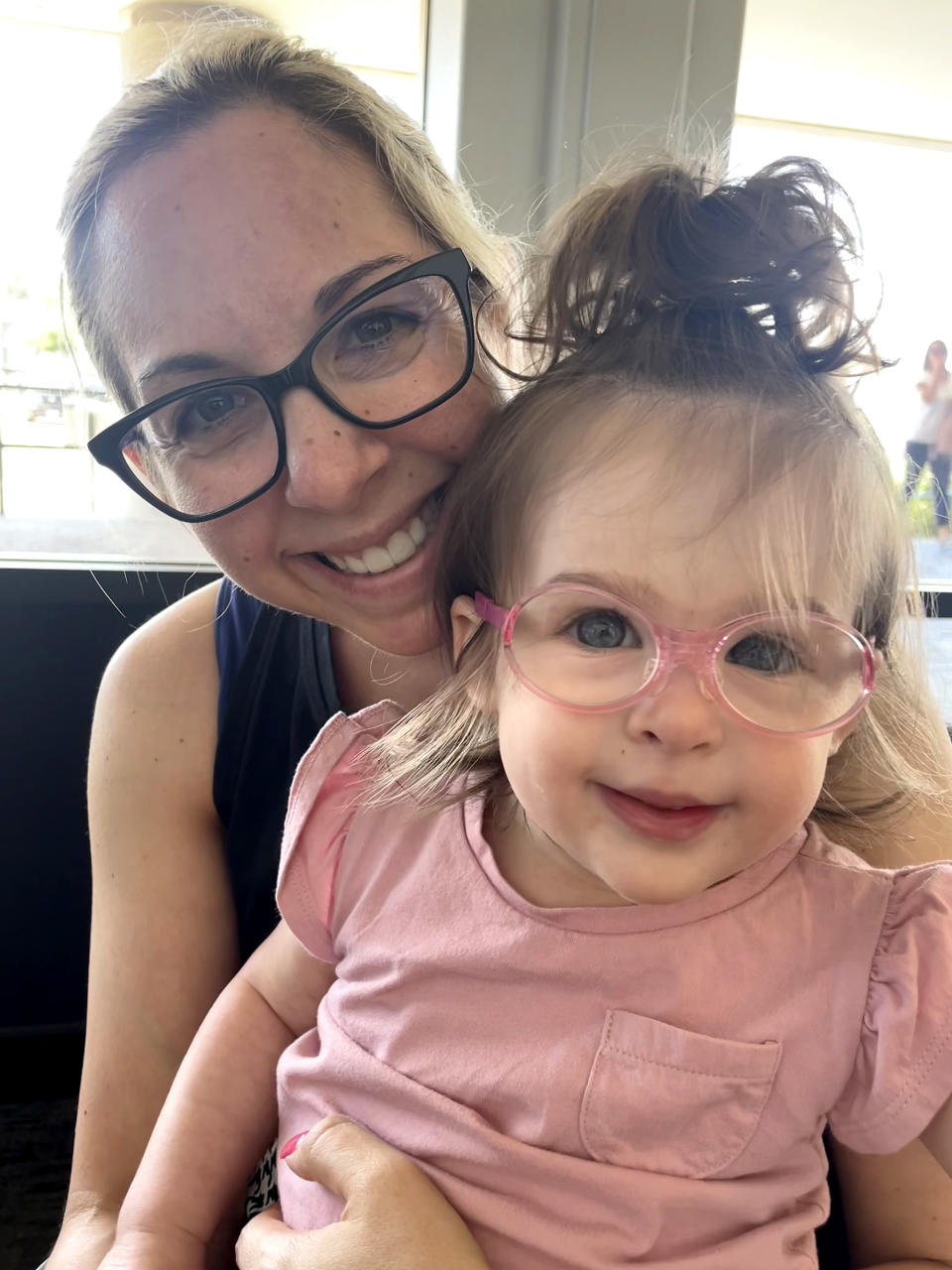I'm a therapist who suffered a miscarriage. We need to talk more about losing a baby

Nicole Sbordone, 39, is a therapist in Scottsdale, Arizona, who helps other people deal with mental health problems. She had to endure her own crisis when she suffered a miscarriage in 2019, with physical problems that lasted for months and an emotional toll that persisted for much longer. Sbordone shared her story and mental health advice for other women with TODAY.com.

I had a positive pregnancy test in August 2019. It was before my 36th birthday and I scheduled my first prenatal 8-week appointment right on my birthday. This was going to be my first child. I was excited and nervous.
I went in with my husband and that’s when the doctor said the fetus was really small and there was no heartbeat. I heard her words, but it didn’t really click what she was saying. It was surreal.
Afterwards, I talked with one of my brothers on the phone and he excitedly said, “How did it go?” I burst out crying and said, “I might be having a miscarriage.” He just went silent on the other end.
It was a Friday and the doctor wanted us to come back the next week to confirm. So it was just this horrible weekend of: Do I grieve? Do I have hope? What do I do? The follow-up appointment confirmed no heartbeat.
It later turned out to be a cornual pregnancy, a rare form of ectopic pregnancy where implantation occurs in the upper cavity of the uterus. The fetus couldn’t grow.
'I don’t know how I got through it'
It was the start of eight months of not being really sure what was going on. I underwent two unsuccessful dilation and curettage surgeries, and took misoprostol, which also didn’t work.
I had a mass — possible leftover remnants from the pregnancy — in my uterus, and for whatever reason, it wasn’t coming out. I was referred to a gynecologic oncologist. My OB said, “If things go this course, you might have to have a hysterectomy.” I remember my eyes got huge because how did we get from me being pregnant to me maybe needing a hysterectomy?
Thankfully, that didn’t happen. The third dilation and curettage surgery was successful.
I look back and I don’t know how I got through it. I didn’t talk about it that much and I really wish I had. It was on my mind literally 24/7. The amount of crying I did — I couldn’t stop it. Then I would have days where I would feel very disconnected and numb.

Everybody else was having babies and getting pregnant, and it’s hard to live your life in that space when you’re going through something so traumatic.
One of the instructors in my gym was pregnant with twins and everyone would ask, “How are you feeling? You’re glowing.” I was in the corner and I was angry. I wanted to yell and tell everyone to shut up. I knew I couldn’t do that, but inside, I was screaming.
'An ambiguous loss'
We all think it’s going to be easy to get pregnant. We don’t talk about that some people may have a miscarriage or have difficulty getting pregnant. One in four women has a miscarriage.
There is no right or wrong way to grieve. One person may try to get pregnant quickly as a way to move on; another may want to wait or not want to try again at all.
I encourage people to try to go through the grieving process and not to avoid their feelings. That includes grieving the hopes, dreams and ideas you had for that baby. Maybe you started to think about what the nursery would look like or you started to think of names. It’s grieving the possible future. Then, there are the anniversaries: the miscarriage anniversary or the due date anniversary.
Also, people say the worst things when somebody is going through a miscarriage. I got a lot of, “Oh, you were only eight weeks along. You’ll try again.”
I consider miscarriages an ambiguous loss, and that’s why I think society has a difficult time recognizing and being compassionate towards them. I can’t tell you how many women I talk to who then share they’ve had a miscarriage — and I never knew. We don’t talk enough about this.
Have people to talk to, whether that’s family, friends or a support group. Make sure you’re engaging in self-care — getting enough rest, fueling, hydrating, going on walks. Cry and journal your feelings. Anything to help you release them is good. Take things day by day.
More people need to talk about it
I got the go-ahead to try to get pregnant again in March 2020. I told my husband, “What if we lose it again?” He just said, “Let’s just try and see what happens.”
Just like the first time, I got pregnant right away.

I was so scared at every prenatal appointment. Even driving to the OB was so triggering. Then right after my first trimester, I was running and fell on my on my stomach. I thought, “Oh my God, I’ve lost the baby,” but thankfully the baby was fine.
She was due Christmas Eve 2020, but she came the day after Thanksgiving. When they put her on my stomach, tears were flowing so hard from my eyes I couldn’t even see her. I think the baby we lost brought her to us.

After having her, people say, “Are you going to have another one?” My jaw drops at these kinds of questions because you don’t know what I went through. People mean well, but they should really think twice about questions they ask women.
My birthday is also the anniversary of the day we found out we were having a miscarriage. I allow myself to cry and I also just hug my daughter extra tight. It’s such a hard experience. I wish more people would talk about it.
This interview was edited and condensed for clarity.
This article was originally published on TODAY.com

